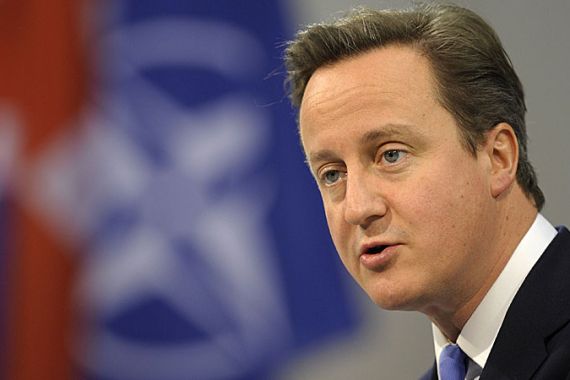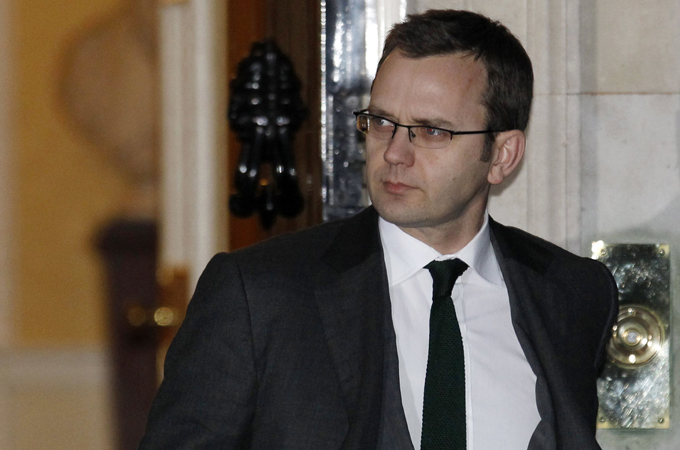Saving, not shooting, the messenger
Mainstream media controls our very perception of reality – but we leave it to elite, unaccountable corporate executives.

 |
| Andy Coulson, former communications chief to British Prime Minister David Cameron, leaves Downing Street [Reuters] |
There is something very wrong with the British media. A little more than three weeks ago, David Cameron’s head of communications, Andy Coulson, resigned. While Coulson was the editor of the News of the World, one of its correspondents was caught hacking the voicemails of members of the royal family. Since then, evidence has accumulated pointing to bugging “on an industrial scale”. At the time, Coulson denied any knowledge of the reporter’s actions and he continues to do so.
Nevertheless, it seems that the News of the World was host to a serious criminal conspiracy while he was editor – the full significance of which is only slowly becoming clear.
The problems go far deeper than the antics of the New of the World’s journalists, serious though this affair is. The major media, including the BBC, have consistently failed to provide accurate and timely information about matters of overriding public concern. Consider the invasion of Iraq. We now know that the Bush administration was intent on regime change in that country and, in the words of one British diplomat, by the summer of 2002, ‘the intelligence and the facts were being fixed around the policy’.
Yet the British media mostly recycled official claims about weapons of mass destruction and allowed the then British prime minister to pretend that military action was necessary to remove “a serious and current threat” to the region and the world.
The years before the financial crisis mark another important failure. The overwhelming bulk of media coverage took it for granted that the systems of economic management in place would prevent any serious problems. The unprecedented build-up of household debt presented no systemic dangers because modern risk management and ‘light touch’ regulation had become so sophisticated. In the words of Richard Lambert, a former editor of the Financial Times, ‘precious few journalists gave any hints at all of what was to come’. Again, events have made a mockery of the prevailing wisdom found in newspapers and on broadcast news.
If we believe that the media’s fundamental purpose is to keep citizens acquainted with the broad outlines of reality, then the case for reform becomes overwhelming. No one who thinks about it for a moment can believe that the media are performing this role. In matters of peace and war and economic management – the core concerns of a responsible citizenry – journalists and editors have failed. And the fact that they have largely ignored or misrepresented their failures is testament to the power of media institutions to control debate – not their fitness to do so.
Media reporting matters
Something else is wrong. Though some of the criminality at the News of the World has been publicised, the media are normally very reluctant to report on themselves. Nick Davies, one of the few investigative journalists willing to report on abusive practices in his industry, began revealing the true scale of the illegal activity at the News of the World in the summer of 2009. But other newspapers only joined in as concern mounted about News International’s expansion plans.
In other words, most people only heard something about one of the most significant criminal conspiracies in recent history because of the private anxieties of Murdoch’s competitors. The public significance of the story alone would not have sufficed to break the media’s ordinary silence about its own internal structures and institutional nature.
Given the constitutional significance of the media – the fact that democracy itself depends on adequate information – we need nothing short of a constitutional change in the way we gather and disseminate that information. At present, the owners and managers of media companies make decisions about what is investigated – and about how much prominence the results of investigation are given. This close control of journalistic curiosity – the ability of a relative handful of individuals to fund some inquiries and to discourage others – shapes the store of information upon which we all draw when we try to piece together an understanding of the world.
The fact that their decisions are rarely discussed in public means that we who depend on them only dimly appreciate the extent of our dependence. This is not a criticism of individuals or a call on them to try harder. The matrix of incentives in which they operate all but ensures that journalists and editors cannot, at present, tell the truth – when doing so threatens powerful interests.
A new system of public control
If we are to overcome the weaknesses of this private and unaccountable process, we need to supplement it with a public and transparent system of commissioning. In this system, the population as a whole would have the means to reflect on the kinds of information it felt it was lacking – and hold the power to secure it. At the moment, we leave decisions about the distribution of material support to professional editors. We should all have some degree of commissioning power.
In this system, journalists and researchers would post outlines for projects with regional bodies. We would then vote online or at libraries for the ones we considered worthwhile. Those proposals that met a threshold of support would receive the funds requested. Once the results of these investigations were published online and in print, the public would have a chance to determine the prominence they received in the major media. The broadcast news on the ITV network and the BBC would be required to carry reports controlled by the journalists whose projects received popular support.
In this system, citizens would have the power to inform themselves. Crucially, they would also have a reasonable expectation their fellow citizens would come to know what they themselves had found out. Becoming knowledgeable about the world would no longer be an alienating experience. Instead the wide and widening gap between observable reality and the content of the news would at last begin to narrow.
Efforts at political reform must focus on the commissioning process and on the prominence given to particular stories in the field of general publicity – that is, in the stock of things that are widely known. Media reform, far more than voting reform, offers us the chance to establish a substantive democracy. If we wish for more than formal freedom, we must remove liberate public opinion from private hands. ‘The people,’ as the Russian writer Mikhail Bakunin once said, ‘must be told everything’.
Dan Hind has worked in publishing since 1998 and is the author of two well-acclaimed books: The Return of the Public and The Threat to Reason. He is also a regular contributor to The Guardian.
Hind’s The Return of the Public? was published by Verso Books.
You can follow him on twitter @Dan Hind
The views expressed in this article are the author’s own and do not necessarily reflect Al Jazeera’s editorial policy.